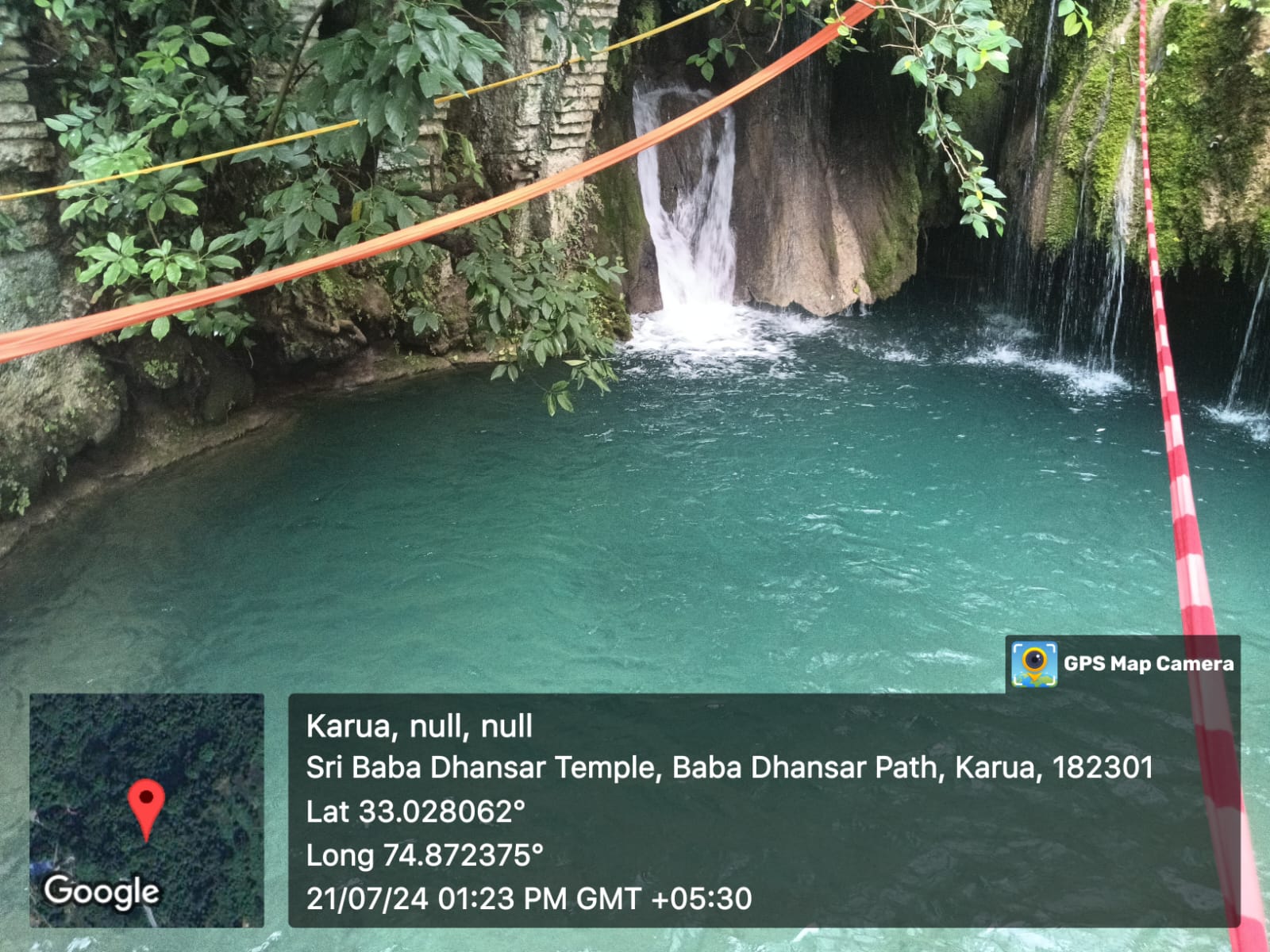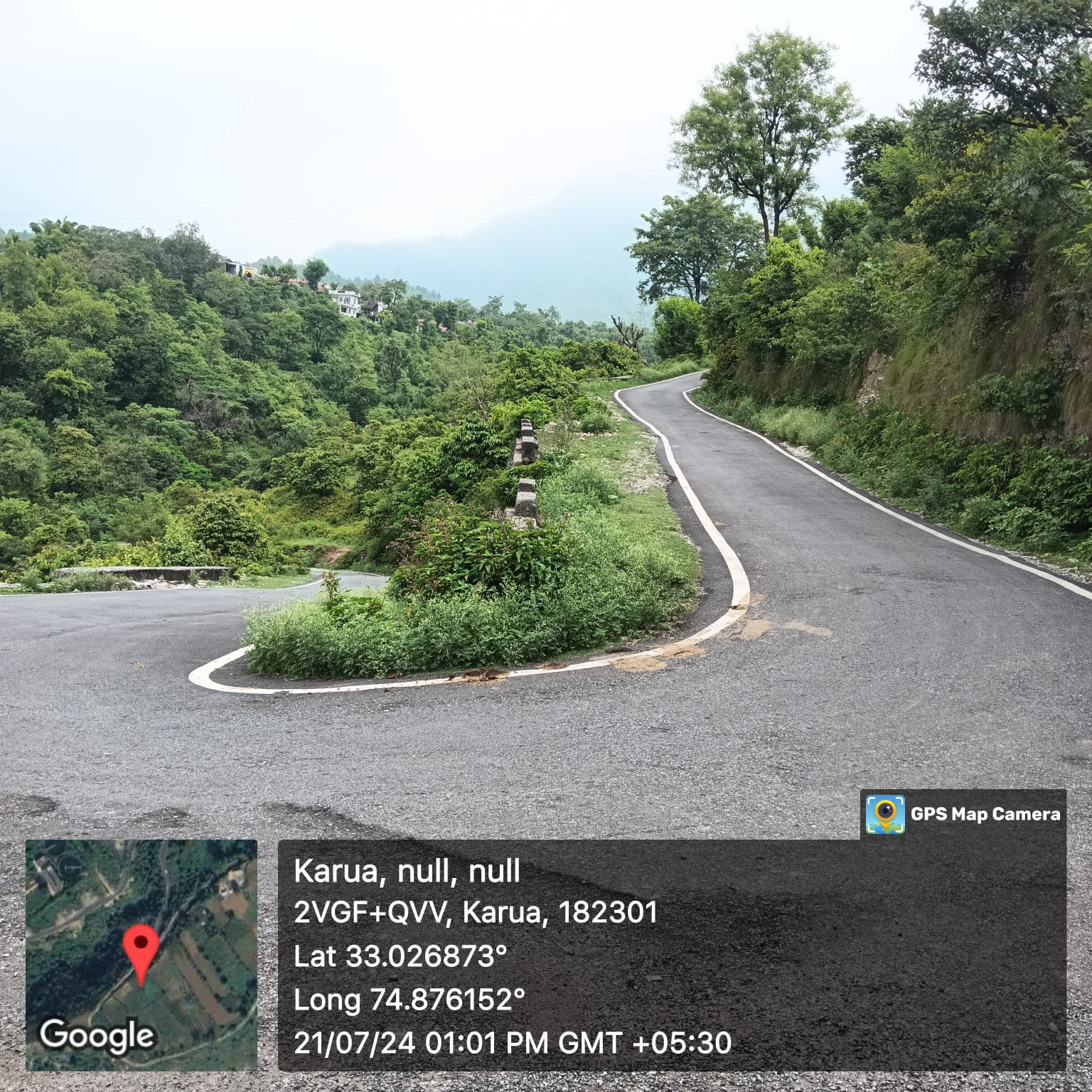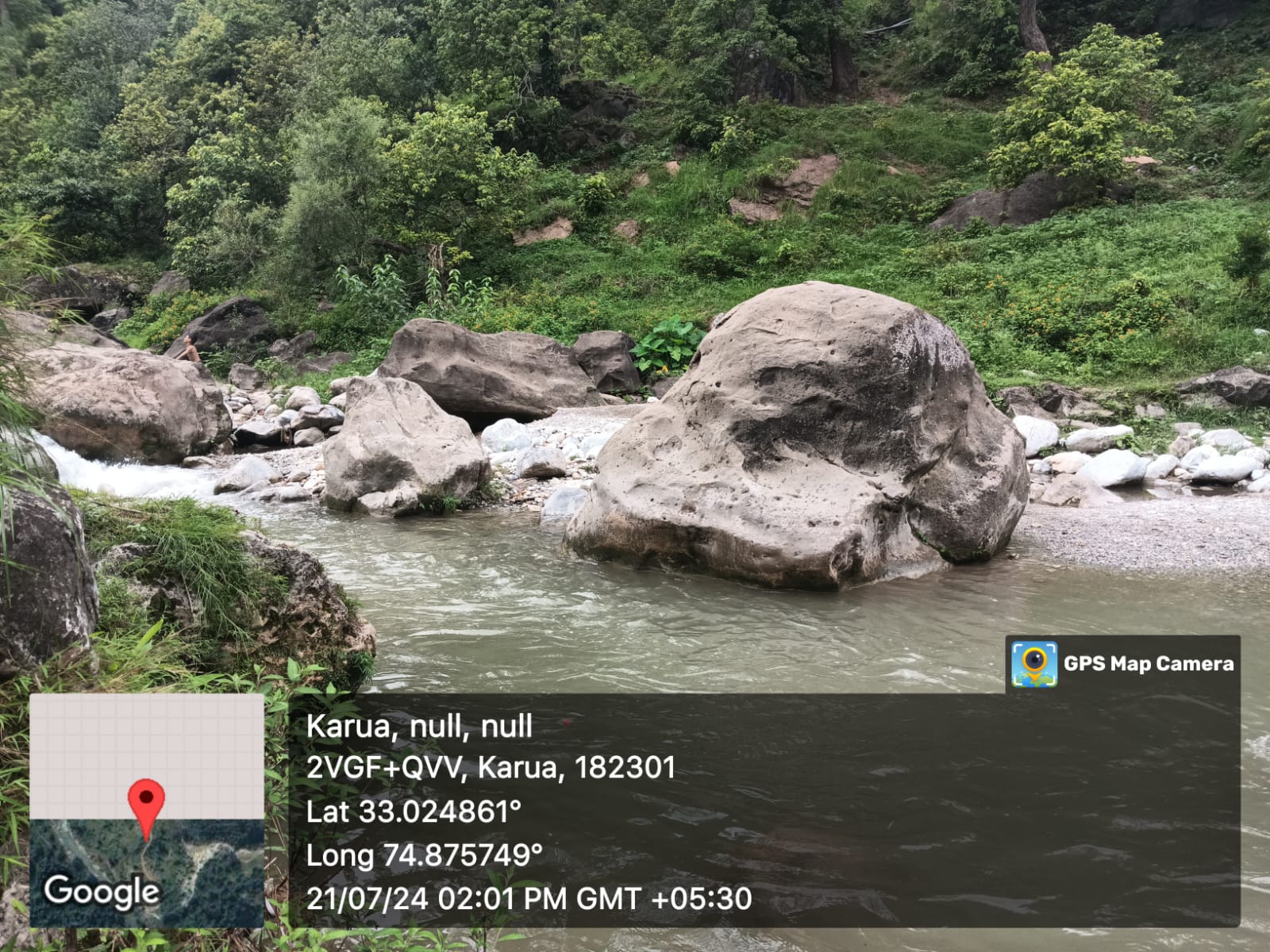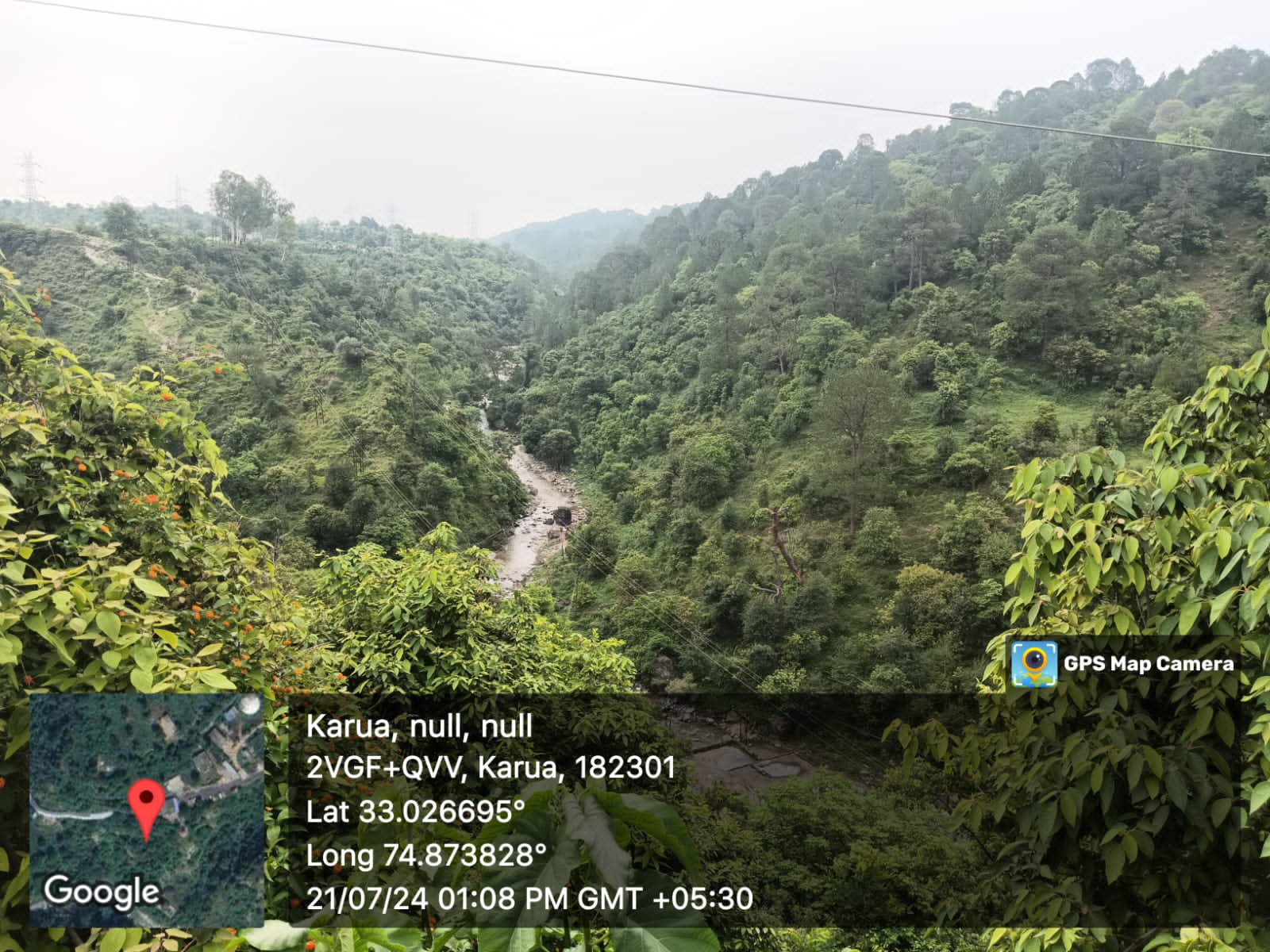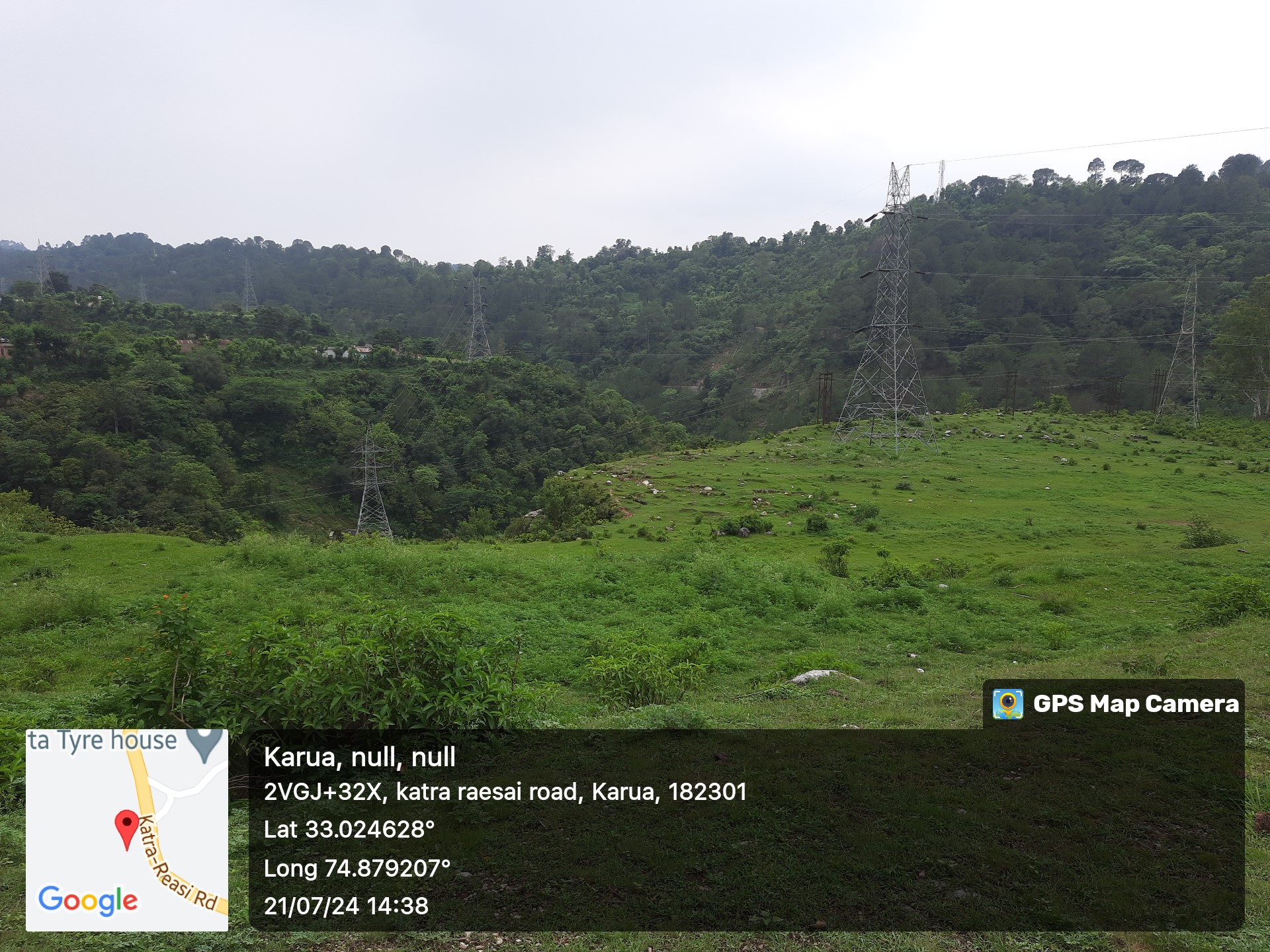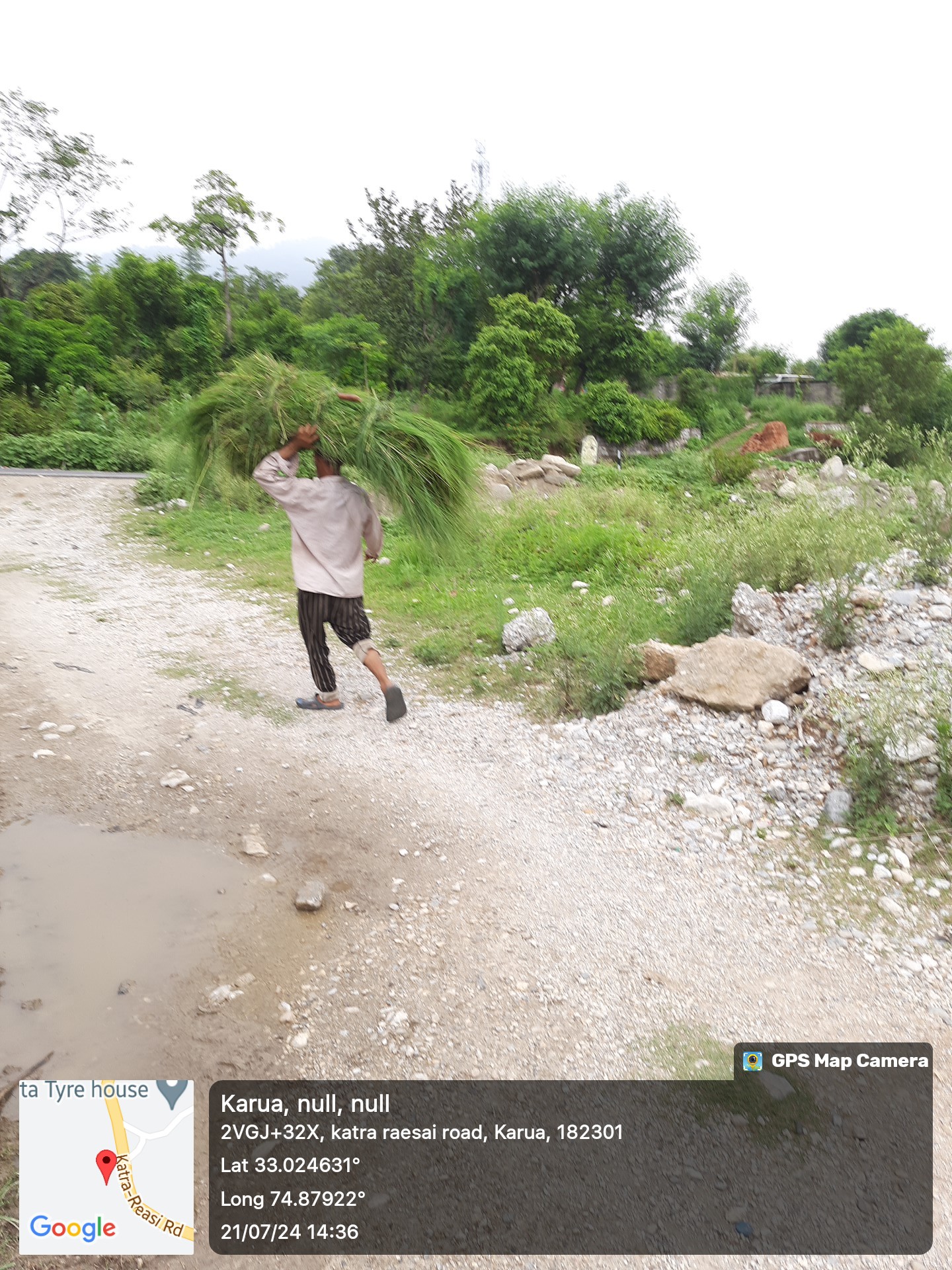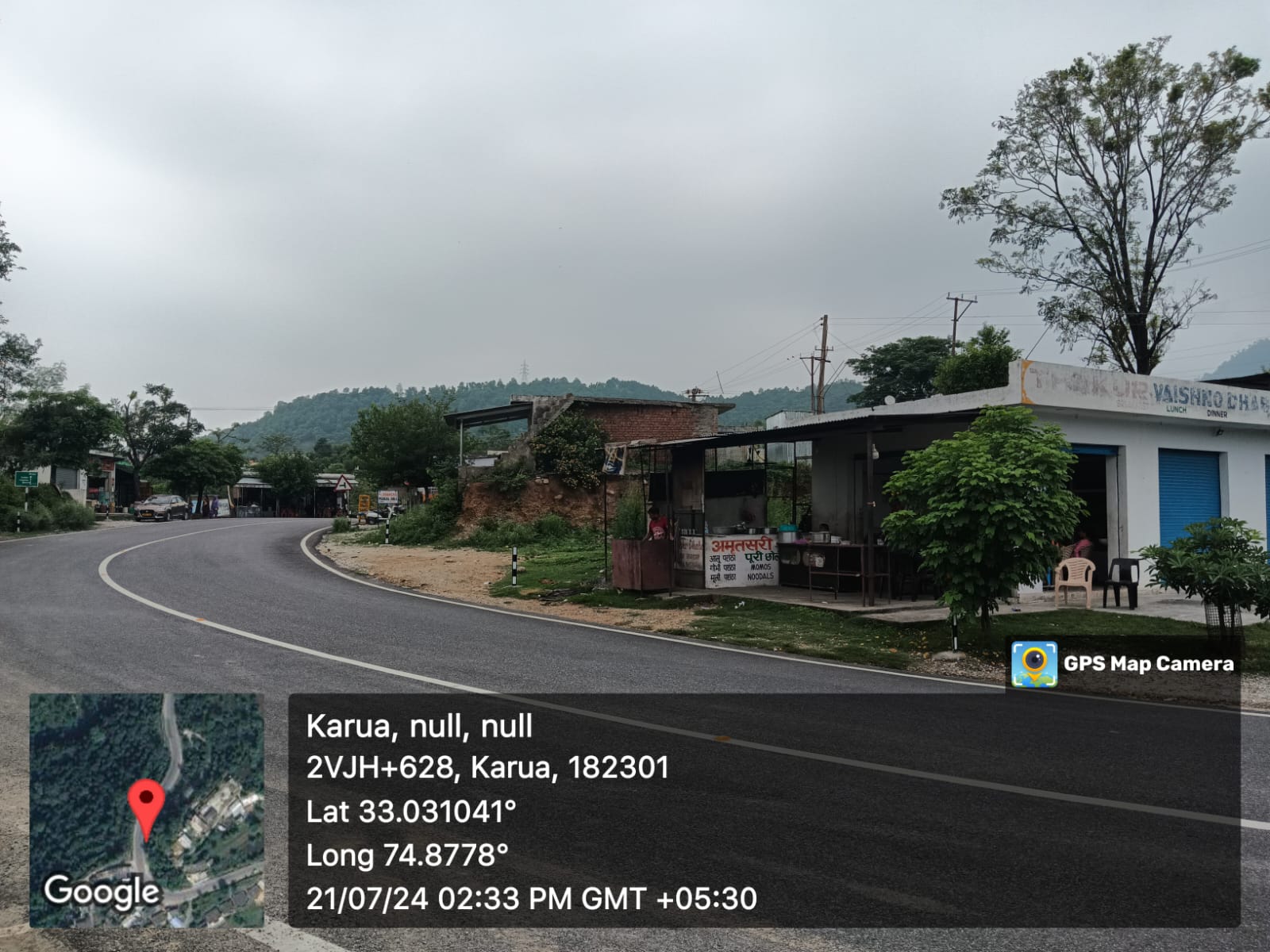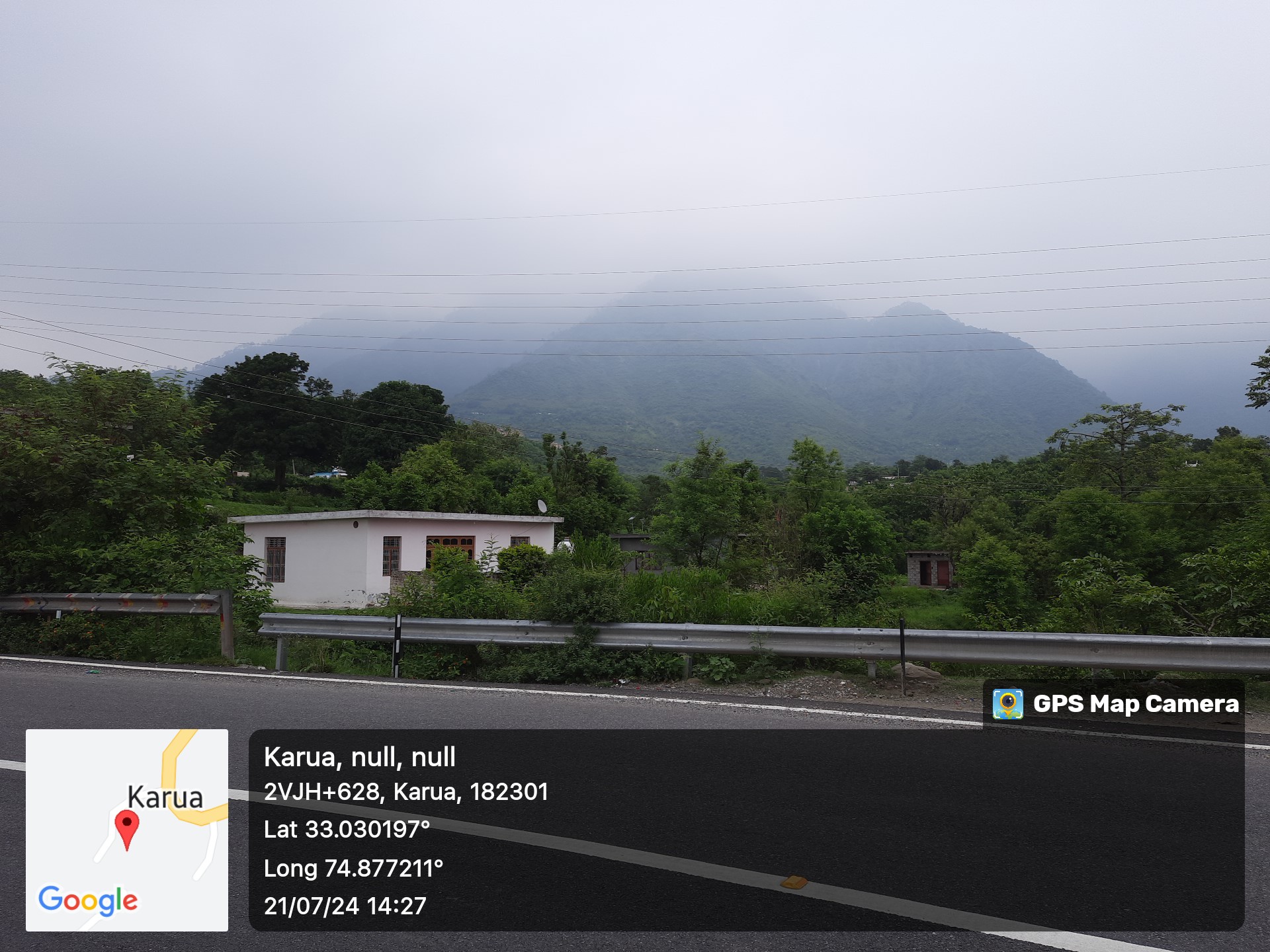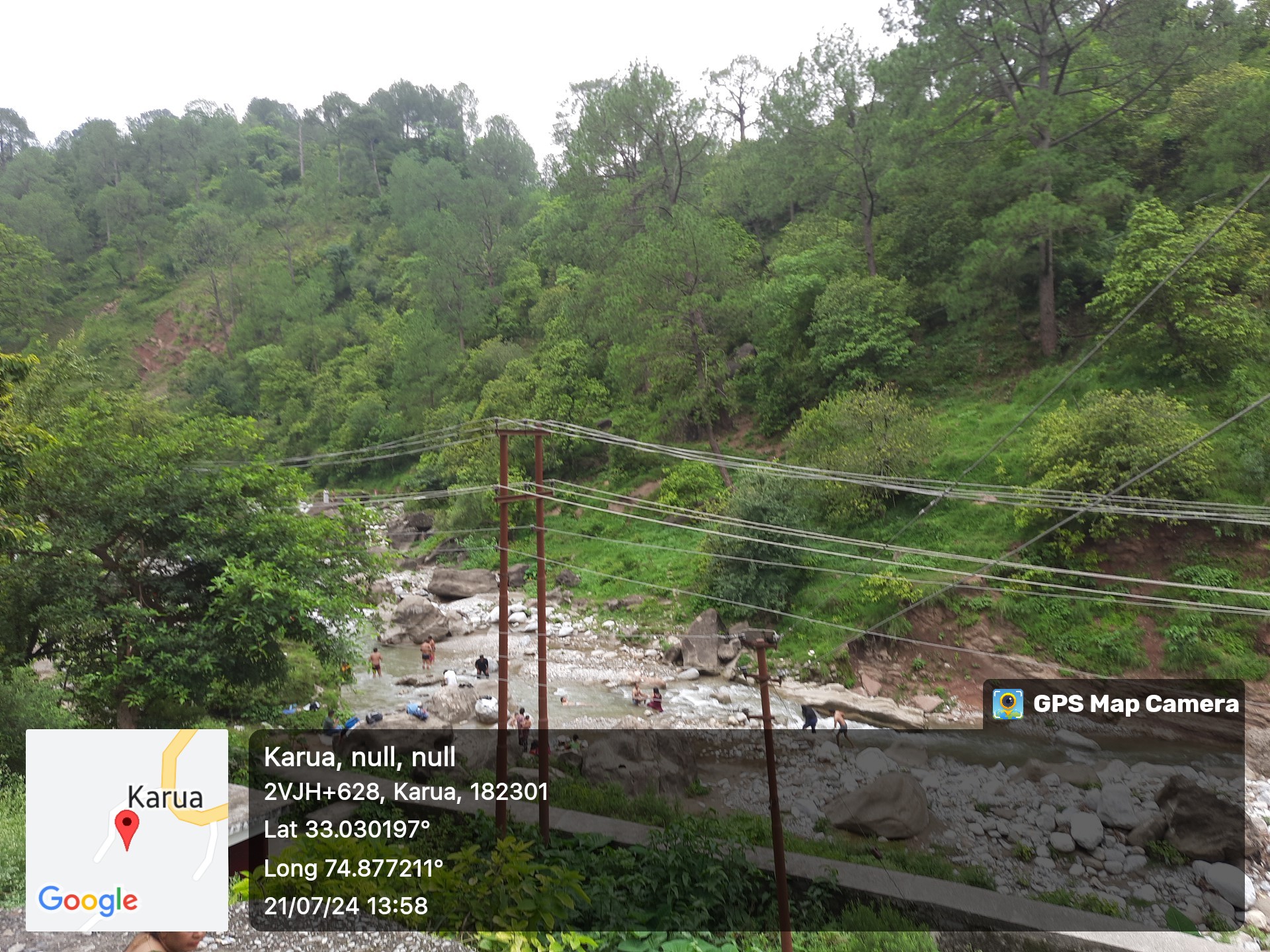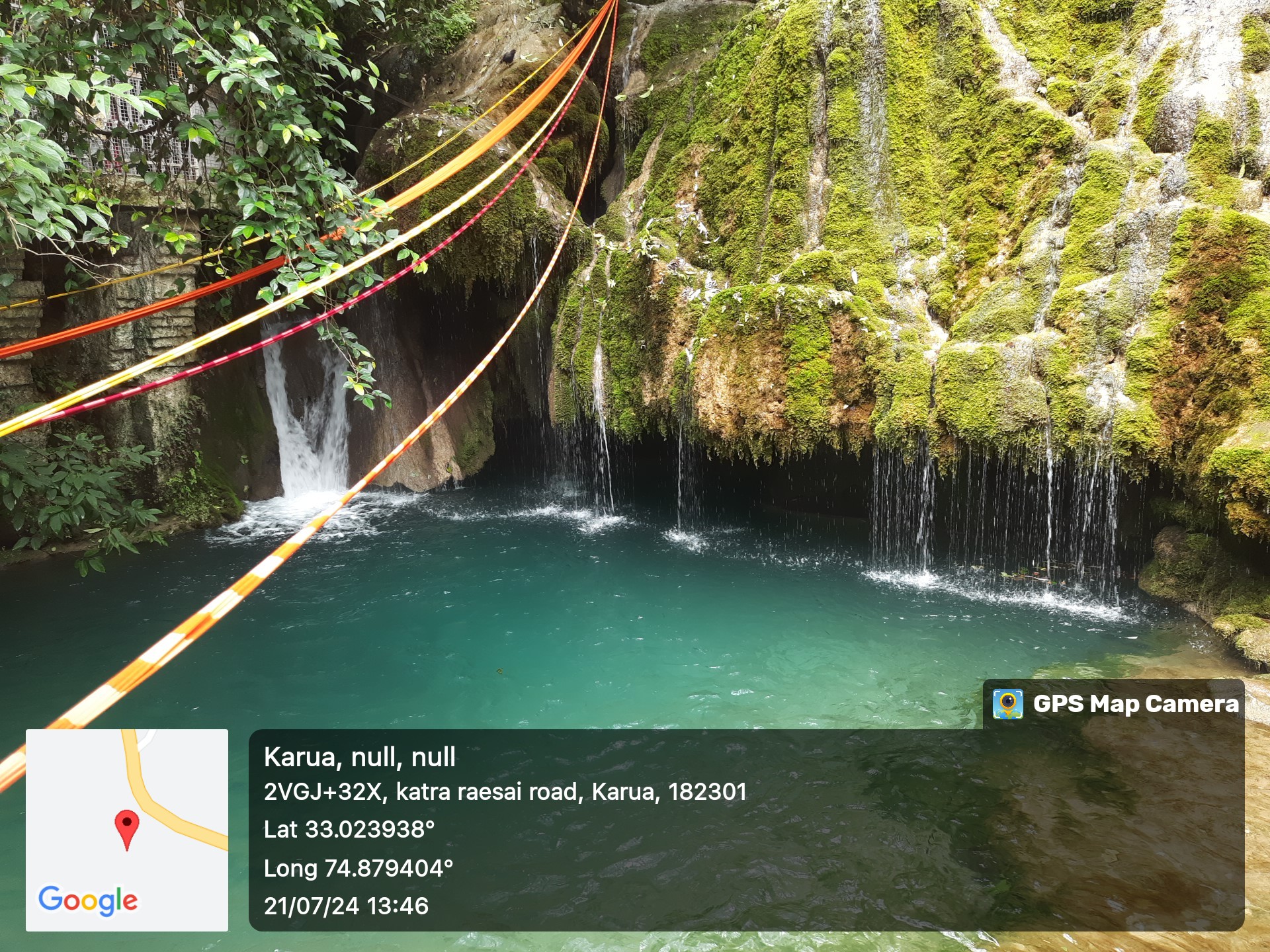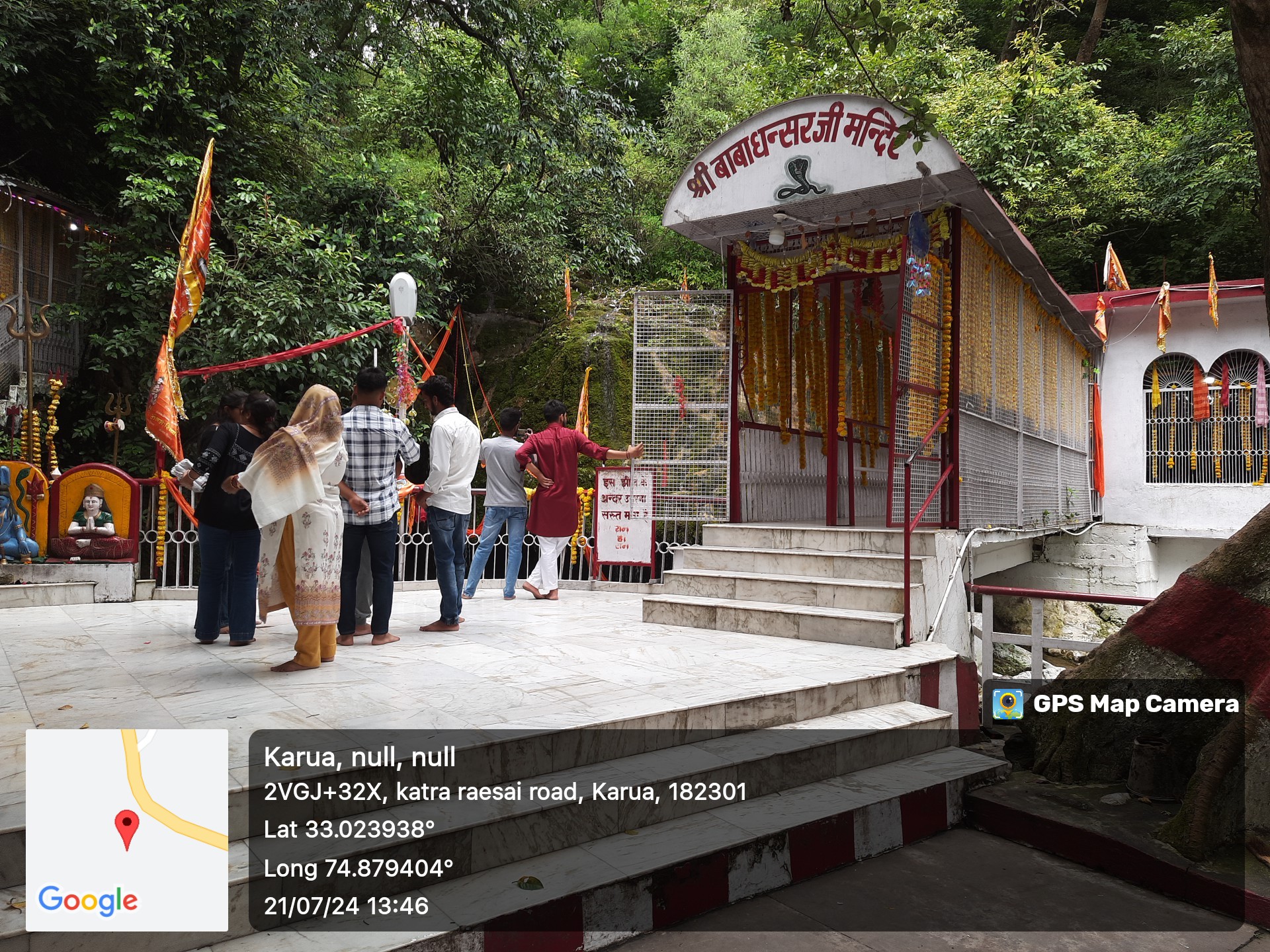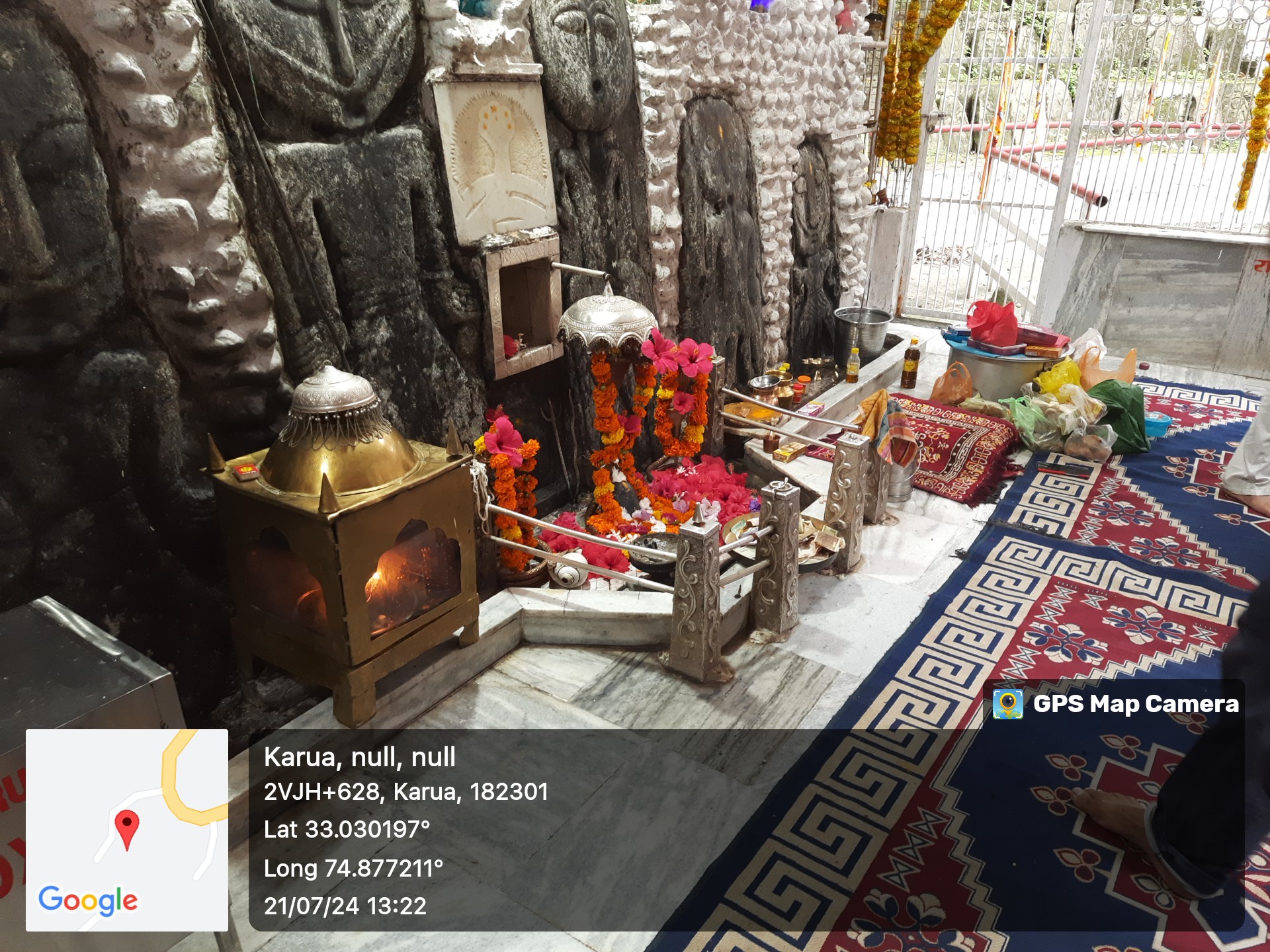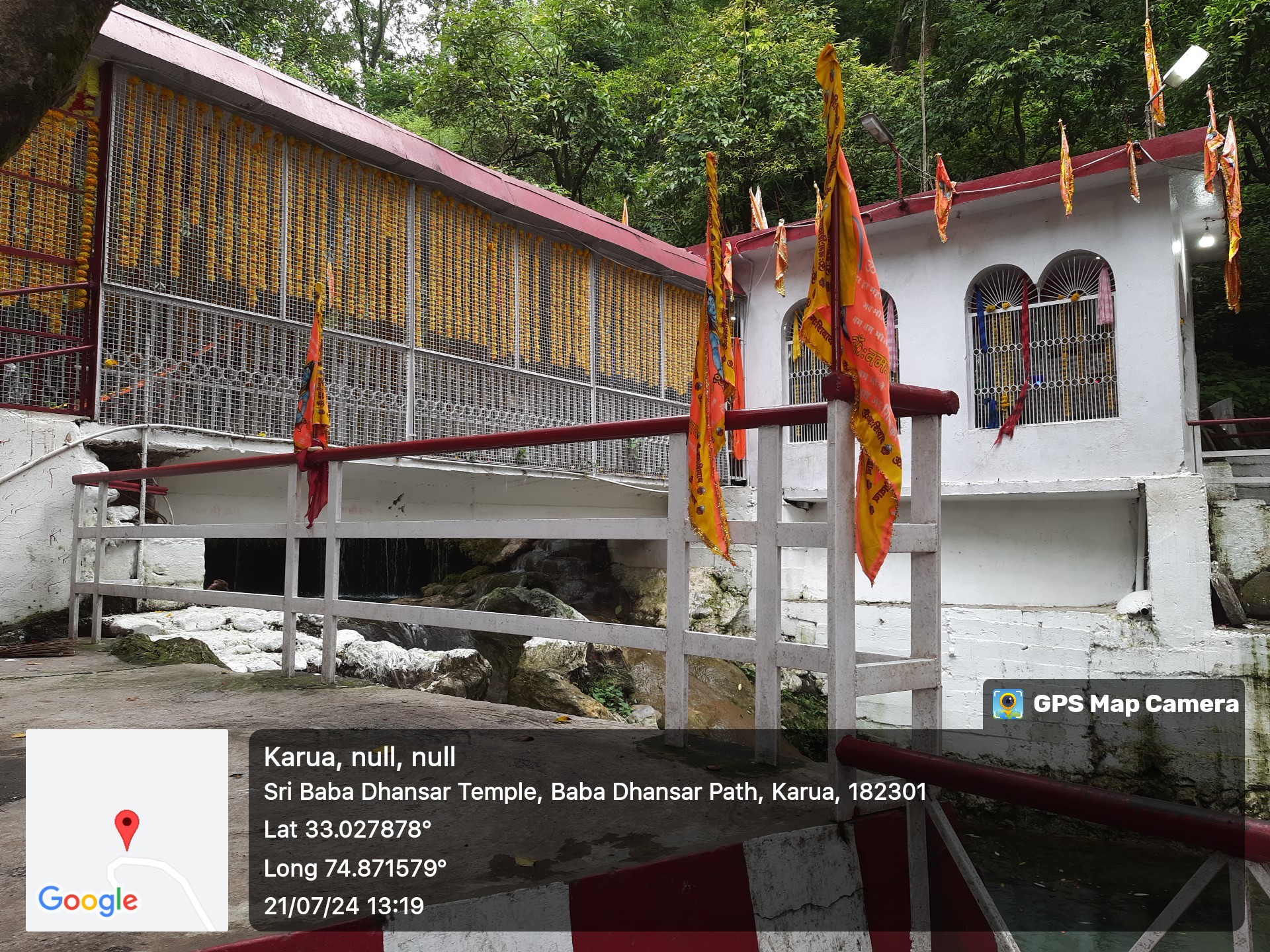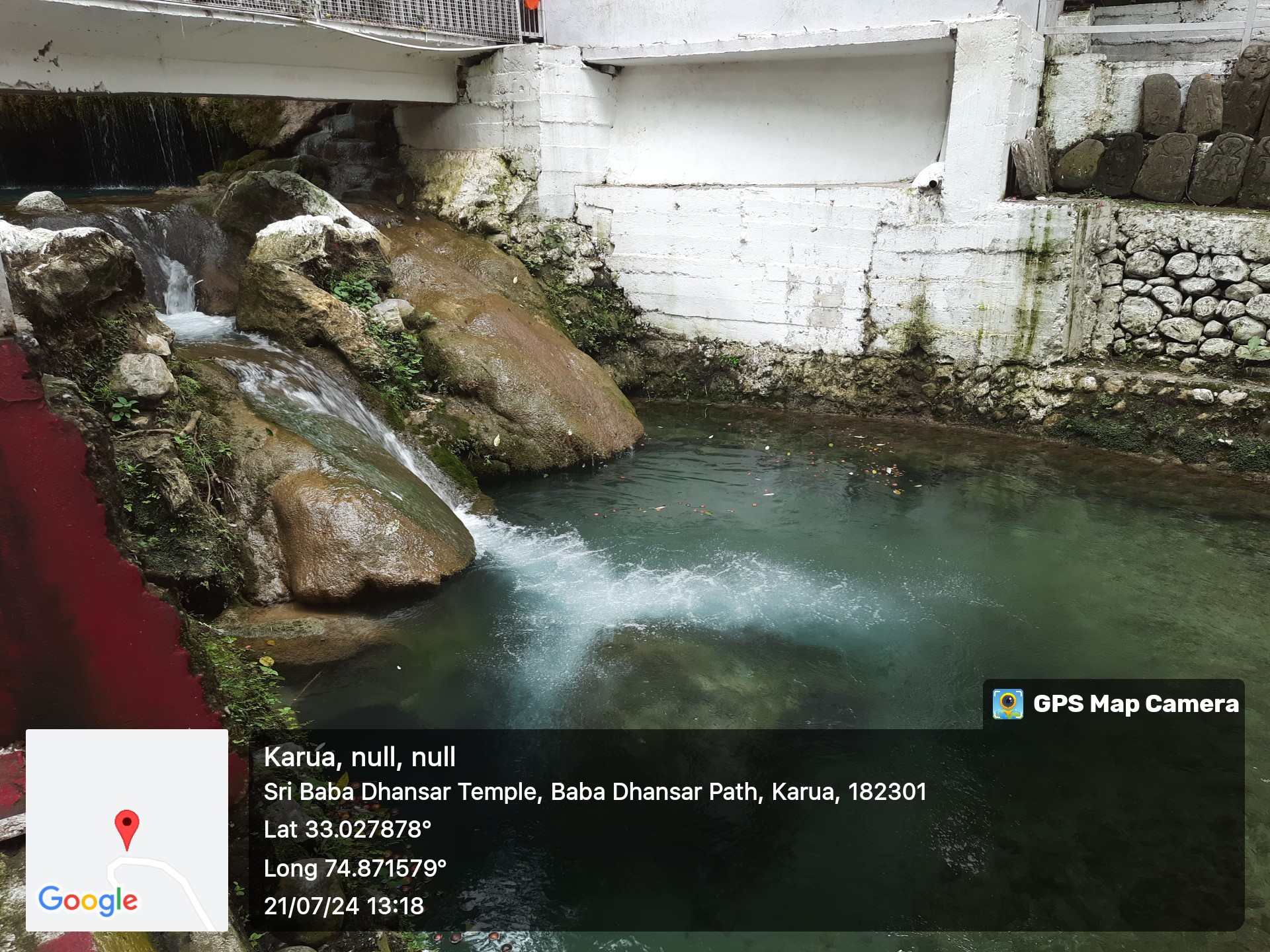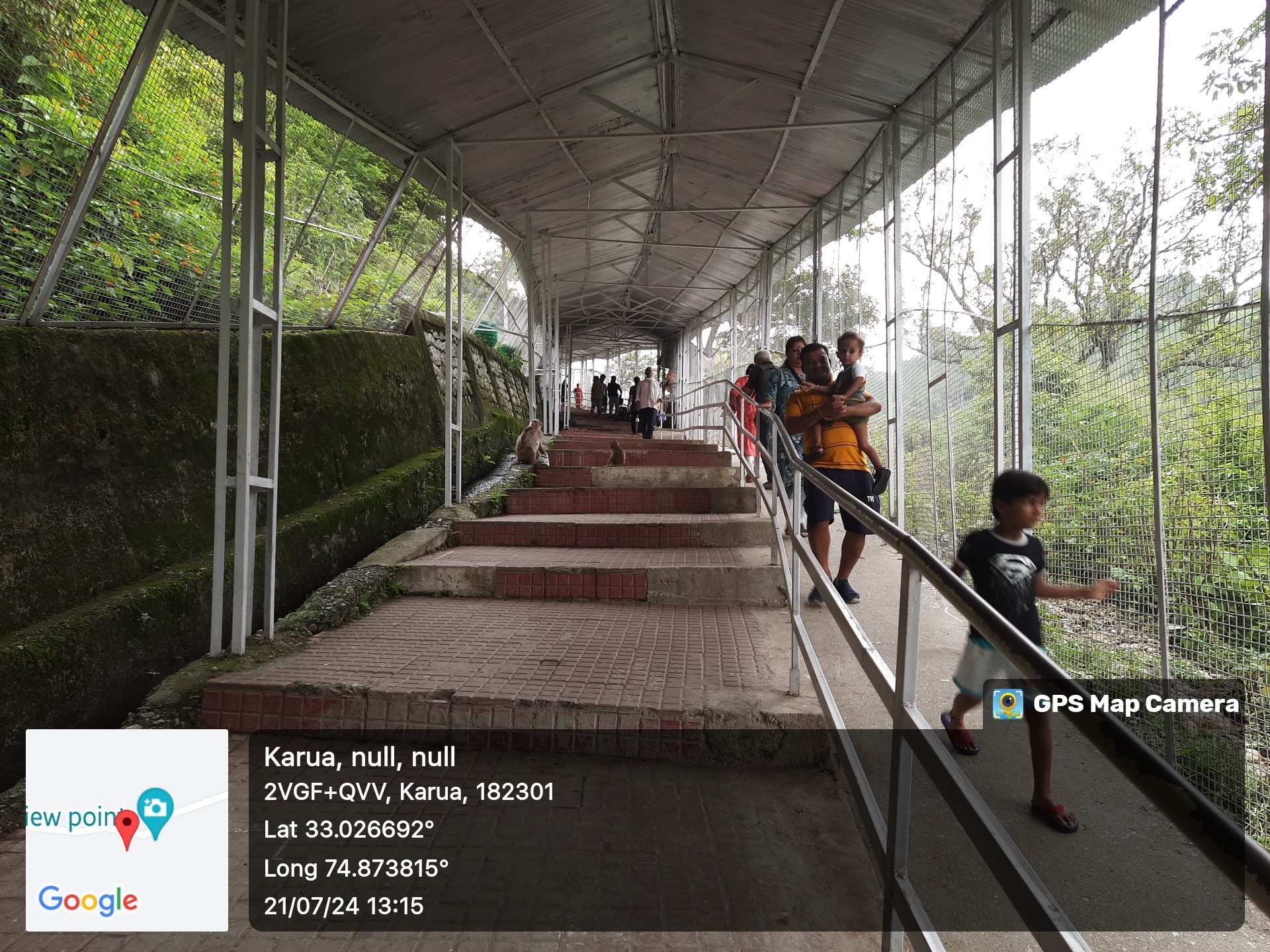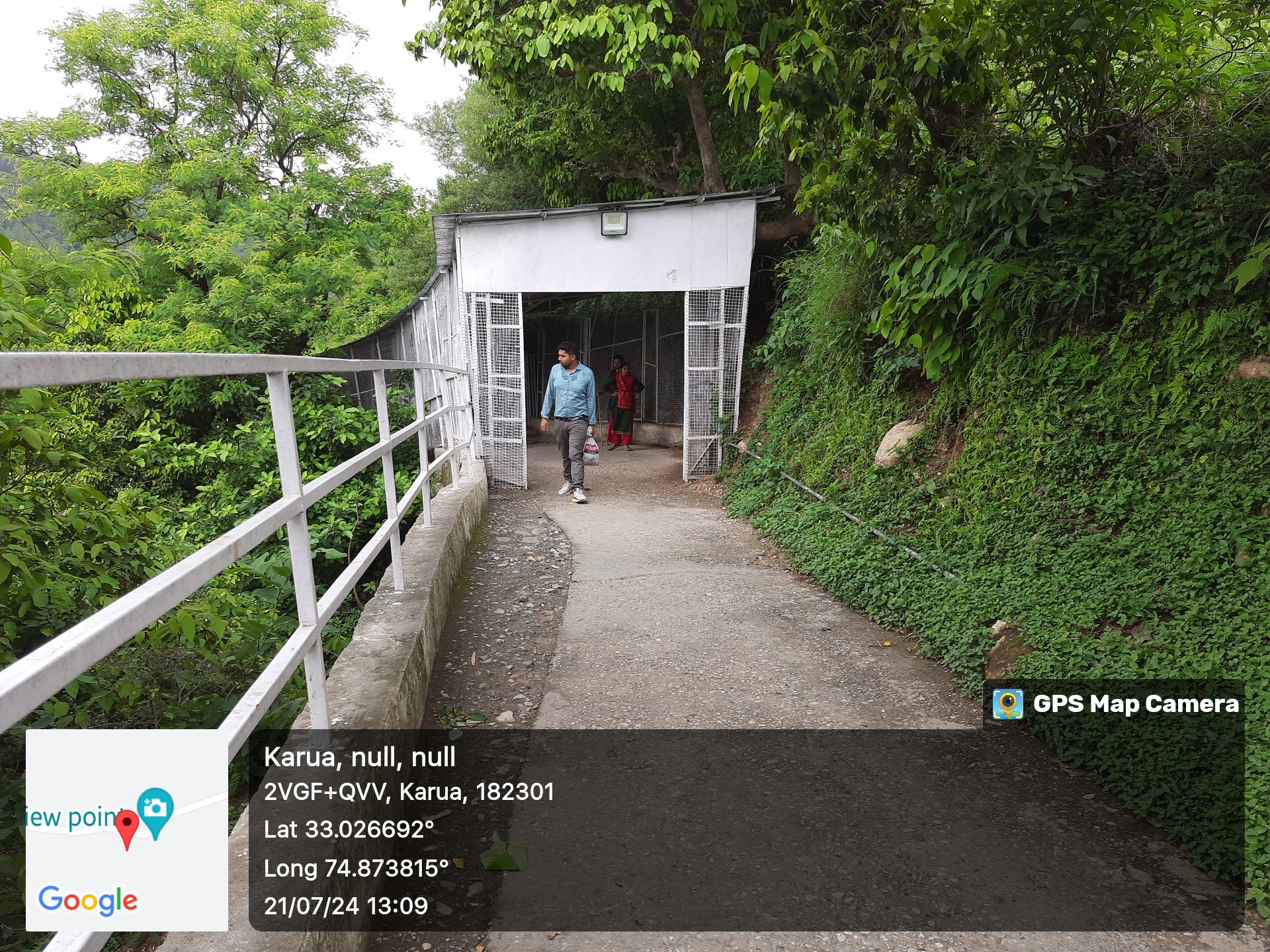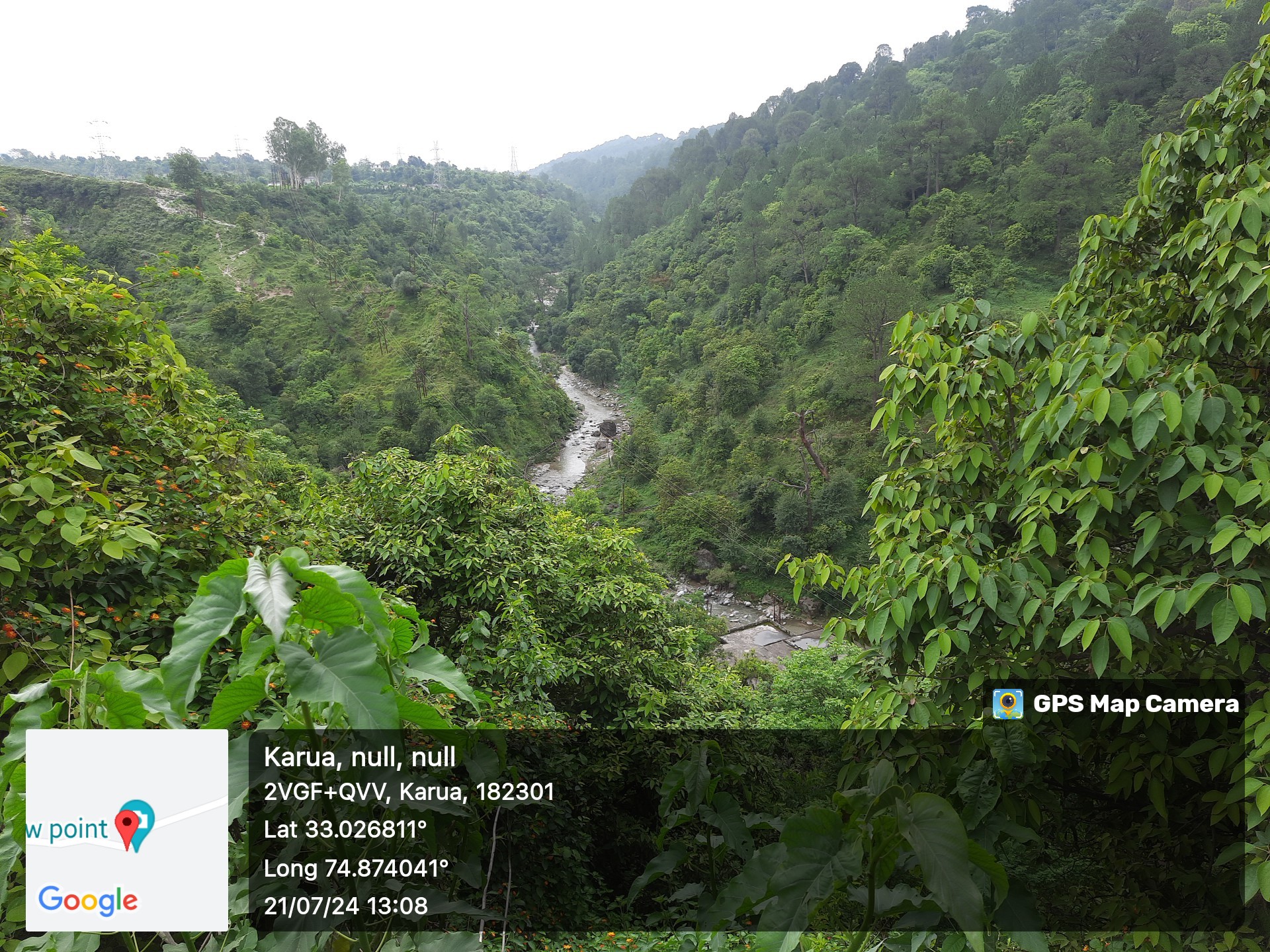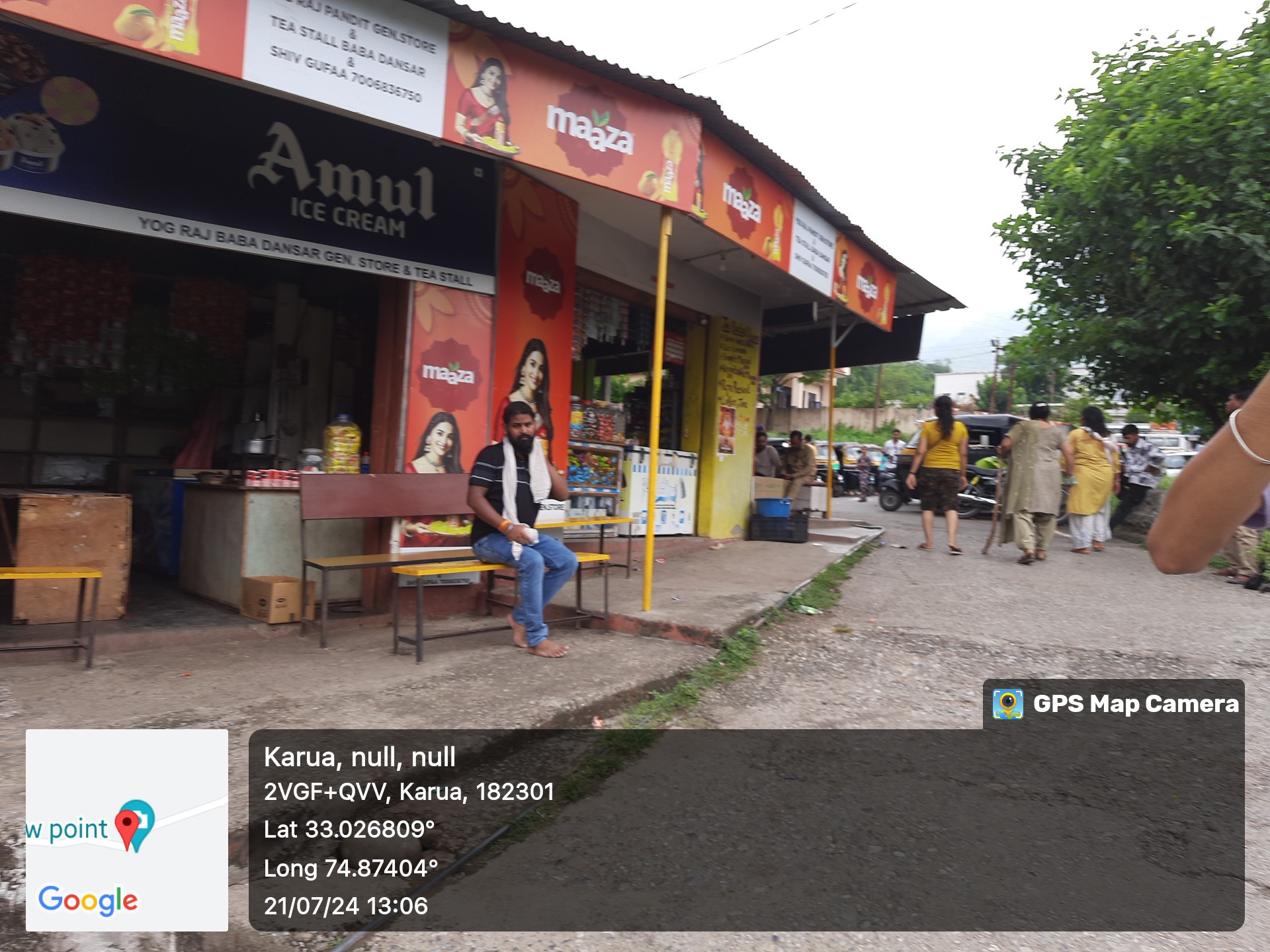Description
Introduction to Karua
Karua Village, located near the revered Baba Dhansar site and Vaishno Devi in Jammu, is a small village of about 2,000 residents, rich in historical and mythological significance. The village is closely tied to the legend of Baba Dhansar, a divine figure associated with Lord Shiva. According to local mythology, Baba Dhansar, the son of Vasudev, prayed to Lord Shiva for assistance in defeating a demon that threatened the area. After his victory, a temple dedicated to Baba Dhansar and Lord Shiva was established, solidifying the village’s importance as a pilgrimage site.
History
Karua Village, near Vaishno Devi in Jammu, has a deep historical and mythological background, rooted primarily in local legends and religious significance. The village is most famous for its connection to Baba Dhansar, a revered figure believed to be the son of Vasudev, a follower of Lord Shiva. According to local lore, Baba Dhansar prayed to Lord Shiva for assistance in defeating a demon that threatened the area. With Shiva's blessings, he vanquished the demon, securing peace for the village. To honor this victory, a temple dedicated to both Baba Dhansar and Lord Shiva was constructed, establishing Karua as a pilgrimage site.
In addition to its mythological heritage, the village holds a cultural significance tied to Dogri traditions, which can be seen in the local customs, attire, cuisine, and folklore. These elements are preserved through oral stories passed down across generations, which continue to define Karua’s identity. The nearby Karua Jheel is also considered sacred, adding to the village’s spiritual aura. Over the years, Karua has become an important site for devotees, especially during Mahashivratri, when pilgrims visit to pay homage and celebrate the village’s religious legacy.
Population and Urbanization
Karua Village, with a population of approximately 2,000 residents, is a small and largely rural settlement. Its development is primarily centered around religious tourism due to the presence of the sacred Baba Dhansar Temple and Karua Jheel. The village has limited urban infrastructure, and its charm lies in its traditional lifestyle, natural landscapes, and cultural heritage.
Urbanization in Karua is minimal, with most residents involved in agriculture and small-scale local businesses catering to pilgrims. The nearest town, Reasi, provides more developed facilities, such as guesthouses, budget hotels, and additional amenities for visitors. For broader services and more urban experiences, residents and tourists can travel to nearby towns like Katra or the city of Jammu. This setting preserves Karua’s peaceful, rural atmosphere, making it a desirable destination for those seeking spirituality and natural beauty over urban conveniences.
Cultural Hertitage of Karua
The cultural heritage of Karua Village is deeply rooted in its religious traditions, specifically centered around the Baba Dhansar Temple and the sacred Karua Jheel. Dogri culture dominates, with locals following traditional customs in attire, cuisine, and folk practices. Ancient stories of Baba Dhansar’s victory over a demon with Lord Shiva's blessings are preserved in village folklore, often shared during festivals like Mahashivratri. The village also observes agricultural rituals, and the architecture, including cave temples and shrines, reflects a blend of spiritual reverence and local craftsmanship.
Village Lifestyle
The lifestyle in Karua Village is traditional and primarily rural, centered around agriculture, local craftsmanship, and religious tourism. Residents engage in farming and small-scale trades, with daily life influenced by religious practices tied to the Baba Dhansar Temple and Karua Jheel. Social gatherings often include folklore, Dogri cultural expressions, and rituals connected to the agricultural cycle. Despite the influx of pilgrims, the village maintains a peaceful, close-knit community atmosphere that values spiritual traditions, family ties, and simple living.
Schools and Education in Karua
In Karua Village, education is available through a few local schools that provide primary and upper primary education. Managed mostly by the Department of Education, these schools serve the rural community by offering co-educational learning environments. Private unaided schools also exist, giving residents options for foundational education within the village. For further educational facilities or secondary schooling, students often look to nearby towns like Reasi or Katra.
Some of the Schools are :-
MS KARUA School , MS KAINKA School , PS JULLHA School
Best time to visit Karua
The best times to visit Karua Village are during spring (March to May) and autumn (September to November). Spring offers mild temperatures and a lush, green landscape, ideal for exploring natural beauty and taking part in local festivals. Autumn brings moderate temperatures, clear skies, and a vibrant post-monsoon environment, making it perfect for sightseeing and pilgrimages. These seasons are especially favorable for enjoying the peaceful surroundings and spiritual sites like the Baba Dhansar Temple and Karua Jheel.
How to reach Karua
To reach Karua Village, you can travel to the nearby towns of Reasi or Katra, which are well-connected by road and rail. From Reasi (about 10 km) or Katra (around 14 km), local transport options like buses, taxis, or private vehicles can take you to Karua. The area is also accessible from Jammu city, which is about 70 km away and offers broader transport connections, including trains and buses. You can plan your trip based on the nearest accessible town to Karua.
Healthcare Facilities
Karua, located near Vaishno Devi in Jammu, has limited healthcare infrastructure within the village itself. However, the nearest healthcare options include a range of medical facilities in nearby towns like Katra and Jammu.
Shri Mata Vaishno Devi Narayana Superspeciality Hospital (Katra): Located in Katra, this NABH-accredited hospital offers specialized treatments in over 20 medical fields, including cardiology, neurology, orthopaedics, oncology, and critical care. The hospital is equipped with advanced diagnostic tools like MRI, CT scans, and ultrasound facilities
District Hospitals in Reasi: Reasi, being nearby, offers basic healthcare services at government facilities. While these hospitals may not be as advanced as the private ones, they cater to common health needs and emergencies
Private Clinics and Local Healthcare: Smaller clinics and local health posts within the village and nearby areas may provide primary care, including first aid and common treatments. However, for serious medical issues or specialized care, travelers and villagers are likely to visit the facilities in Katra or Jammu.
Entertainment and Cultural Venues
Karua Village, with its rich cultural heritage and religious significance, offers limited formal entertainment and cultural venues due to its small size and rural nature. However, the village's vibrant cultural life revolves around its religious sites, festivals, and local traditions.
Baba Dhansar Temple: The primary cultural and spiritual venue in Karua is the Baba Dhansar Temple. It draws pilgrims, especially during festivals like Mahashivratri. The temple's serene setting and religious significance make it a central point of community gatherings, prayers, and celebrations.
Karua Jheel: The sacred lake near the village also holds cultural importance. Although visitors are prohibited from bathing in the lake itself, it remains a peaceful spot for reflection and connects with local spiritual practices. The surrounding natural beauty enhances the spiritual atmosphere during religious events.
Fairs and Festivals: The village comes alive during local fairs and festivals, where cultural expressions such as Dogri folk songs, dances, and traditional rituals are showcased. These events are often tied to religious observances, with offerings, processions, and performances by the villagers.
Dogri Cultural Influence: The region's Dogri culture influences various aspects of village life, from traditional attire to folk music and dance. These elements often make their way into local celebrations and religious gatherings.
Sports Facilities
Sports facilities in Karua are not as widely developed as in larger towns or cities, but there are opportunities for local outdoor sports and recreational activities. The region, being part of Jammu and Kashmir, offers scenic natural environments, and sports like cricket, volleyball, and football are commonly enjoyed by villagers. The natural terrain also makes it ideal for trekking and hiking, as the area around Karua features mountainous landscapes that provide opportunities for adventure sports, such as trekking.
Arts and Cultural Contributions
Karua Village, rich in cultural heritage, is deeply influenced by its religious significance and the traditions of Dogri culture. The arts and cultural contributions of the village are woven into its local festivals, folk music, dance, and religious practices. Here are some key aspects of its cultural contributions:
Dogri Folk Music and Dance: The village's cultural identity is strongly tied to the Dogri community. Traditional folk songs, dances, and music are performed during religious festivals and community events. These forms of cultural expression are a vital part of the village's identity and are passed down through generations
Religious Art and Architecture: The Baba Dhansar Temple, a central cultural and religious landmark, features traditional religious art and architecture. The stone carvings and sculptures within the temple and the cave temples dedicated to Lord Shiva highlight local craftsmanship and religious reverence. These architectural elements are significant not just spiritually but also culturally, representing the artistic traditions of the region
Cultral Festivals: The village plays a significant role in local festivals such as Mahashivratri, where traditional rituals and customs are observed. These events often include offerings, prayers, and community gatherings, showcasing the spiritual and cultural heritage of the area
Oral Traditions and Storytelling: The village preserves rich oral traditions, with stories of Baba Dhansar and other local deities being shared through generations. These stories contribute to the cultural fabric of Karua, as they offer insights into the religious and historical past of the region.
Biodiversity
Karua village, part of the Jammu region, is rich in biodiversity, particularly in its natural vegetation. The area boasts native flora such as the Chinar tree, magnolias, willows, and various shrubs like Viburnum and Rosa species. These plants are adapted to the local climate and contribute to the area’s ecological balance. The diversity of plants supports local wildlife and adds to the aesthetic beauty of the region, especially in areas like Jammu and Kishtwar. This combination of natural beauty and ecological richness enhances Karua's appeal as a pilgrimage and nature destination.
Photos
Videos
Location Map
Contact Information
| Address |
2VGF+QVV, Karua, Jammu and Kashmir 182301 |
| Phone Number |
7006593763 |
| Email Address | |
| Website | https://jkpanchayat.jk.gov.in/reportpanchayatregistered.php?district=Reasi |

